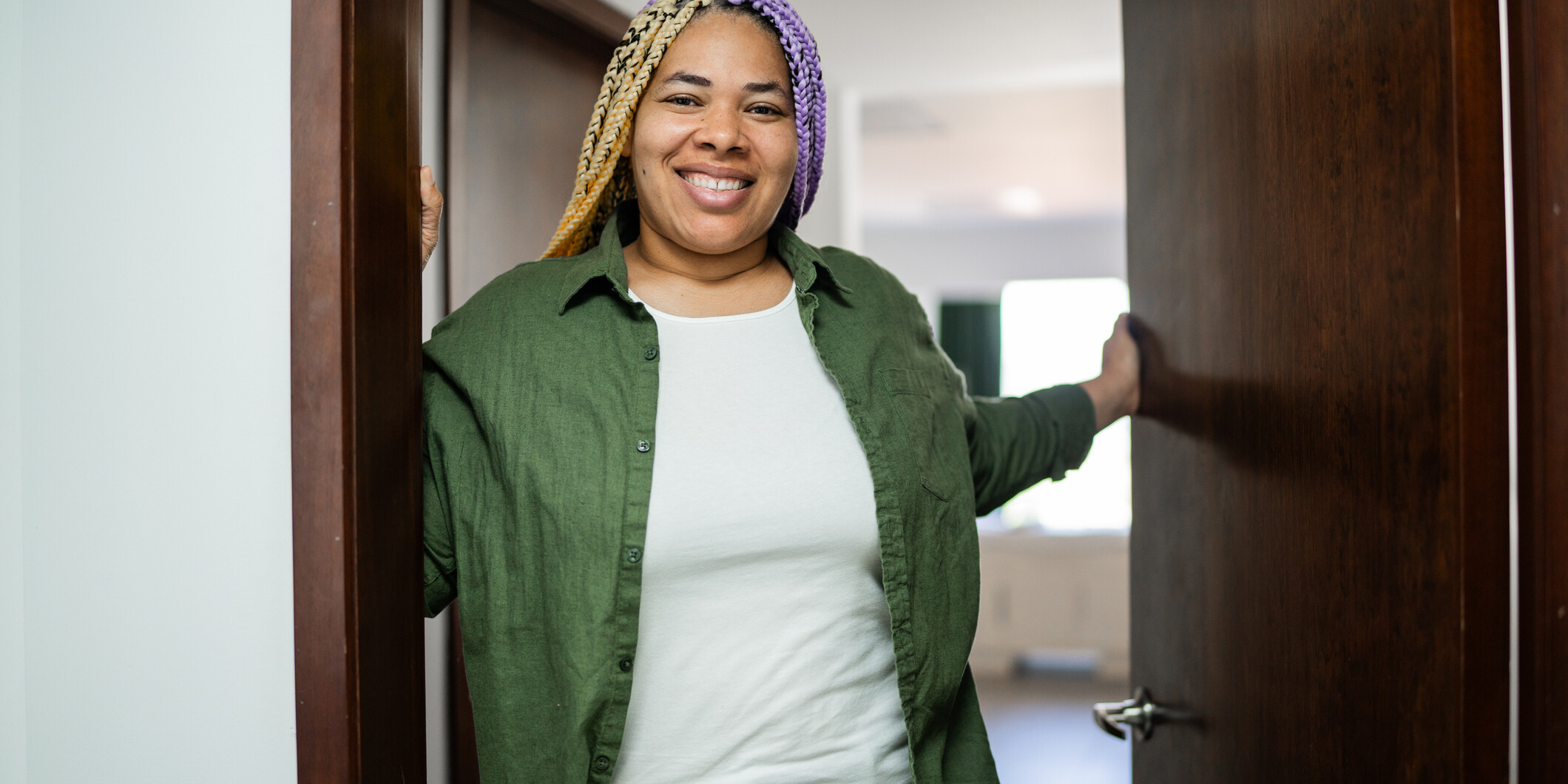Ever since he was a small child, my oldest son has been a little gentleman who seemed instinctively driven to care for me. Doors opened without prompting. Help followed whenever his eyes caught me juggling too many things at once. He watched my emotional state closely, stepping in with reassurance the moment he sensed anything less than happiness. At the time, I saw this as sweetness. I believed I was raising a thoughtful, compassionate boy. Over time, however, that sweetness began to shift into something heavier. I knew then, that I had to stop treating my son like my husband.
One afternoon, I asked him to watch his younger brothers while I stepped into another room to take a phone call. I expected mild chaos at worst. Instead, I returned to the sound of my ten-year-old son yelling at his brothers, ordering them to clean up their mess before he had to spank them. Shock froze me in place. In that moment, I realized he was not simply helping—he was parenting.
That moment forced me to confront a truth I had been avoiding.
Treating Your Son Like Your Husband Starts Quietly
Parentification rarely arrives with warning signs that scream for attention. It slips in quietly, often disguised as responsibility, maturity, or being “the man of the house.” After my divorce, I frequently asked my son to help fill the gaps left behind. I asked him to carry groceries and take out the trash. He vacuumed, assembled furniture, and managed his younger siblings. Each request felt reasonable in isolation.
What I did not understand at the time was the power of one sentence I repeated without thinking: “Can you help me with this? Your dad’s not here anymore.”
That phrase placed an invisible cape of responsibility on my child’s shoulders.
While I believed I was teaching resilience and teamwork, my son heard something different. He heard that it was his job to step into an adult role. He heard that my stability depended on him. Without realizing it, I invited him to fill shoes far too large for his growing feet.
Divorce and the Shift in Parent-Child Dynamics
Divorce disrupts more than romantic partnerships. It reshapes family systems, emotional boundaries, and expectations. In the aftermath of my separation from his father, I became consumed by survival. Bills demanded attention. Emotional wounds needed tending. Parenting alone felt overwhelming.
During that period, I missed the subtle shift happening between my son and me.
What once reflected a child’s natural desire to please his parent transformed into an unspoken obligation. He stopped helping because he wanted to. He started helping because he felt he had to. His role quietly evolved from son to protector, assistant, and emotional anchor.
That realization unsettled me deeply.
When Helping Becomes Role Reversal
Children want to help. That instinct is healthy. Problems arise when help becomes responsibility and responsibility becomes identity. My son did not simply assist around the house. He began monitoring situations and assessing my moods. My son even attempted to enforce rules with authority that did not belong to him.
At that point, I recognized something critical.
Treating your son like your husband does not require explicit words or intentions. Over time, emotional reliance replaces parental leadership, responsibility shifts onto the child, and boundaries give way to role reversal.
A child should never feel responsible for holding a family together.
Why Society Encourages Sons to Step In
Cultural messaging plays a significant role in this dynamic. Society often praises boys who “step up” for their single mothers. Phrases like “take care of your mom,” “you’re the man of the house,” and “you’re in charge now” reinforce the idea that sons should replace absent fathers.
Even well-meaning adults repeat these phrases without considering the long-term impact.
When one family member leaves, another naturally fills the space. Children sense absence and move instinctively to restore balance. Without clear boundaries, that instinct turns into emotional labor. Over time, this labor becomes an expectation.
Children should not be assigned adult identities to cope with adult loss.
Treating Your Son Like Your Husband Harms Development
Brain development offers important insight here. A child’s brain is not fully developed until their mid-twenties. While children may appear capable, their emotional regulation, impulse control, and decision-making systems remain under construction.
Asking a child to function as an adult places them in an impossible position.
Handing adult responsibilities to a child resembles handing car keys to a five-year-old. The child may understand the concept of driving, but they lack the neurological capacity to manage the task safely. Emotional responsibility works the same way.
When children carry adult burdens, their nervous systems adapt in unhealthy ways.
Signs You May Be Treating Your Son Like Your Husband
Recognizing parentification requires honesty and self-compassion. Many parents engage in these behaviors unintentionally. Awareness creates opportunity for change.
Consider whether any of the following occur in your household:
- You discuss financial stress or money problems with your son
- You rely on your son for emotional support or reassurance
- You allow your son to make adult decisions for the household
- Your son regularly sacrifices friendships or activities to stay with you
- Your son mediates conflicts between you and his father
- You confide in your son about dating or romantic relationships
- Your son takes responsibility for household finances or caregiving
- Your son monitors your whereabouts or feels entitled to that information
Patterns matter more than isolated moments.
Reclaiming Your Role as the Parent
Acknowledging this dynamic does not make you a bad parent. It makes you an aware one. Once I recognized that I was treating my son more like an adult than a child, I chose to change course.
I began restoring appropriate boundaries.
Structure returned to our home. Routines replaced emotional unpredictability. I reduced his responsibilities and increased his opportunities for play. I made space for laughter, rest, and childhood joy.
Most importantly, I reclaimed my role as the leader.
Creating Safety Without Emotional Dependence
Children thrive when parents provide emotional safety without emotional reliance. That balance requires intentional effort, especially in single-parent households.
I stopped sharing adult worries with my son and turned to other adults for emotional support. Healthy coping strategies replaced any reliance on him for reassurance.
When my son expressed concern, I acknowledged his feelings without burdening him with solutions.
Raising Caring Sons Without Burdening Them
Empathy and responsibility are not the enemy. Burden is. Raising emotionally healthy boys means teaching kindness while preserving boundaries. It means encouraging helpfulness without assigning adult roles.
Children learn care best when they observe it modeled appropriately.
My sons still help around the house. They still show compassion. They still demonstrate emotional awareness. The difference lies in clarity. They understand that I am the parent. They understand that they are safe to be children.
Treating Your Son Like Your Husband Undermines Authority
Parental authority provides security. When children feel equal to parents, anxiety increases. Clear hierarchy allows children to relax, trust, and grow.
Stating the truth became essential in my home.
“You are not in charge. I am.”
“You are not my partner.”
“You are my son.”
Those words restored balance.
Allowing Sons to Experience Childhood Fully
Children deserve childhood without emotional weight. They deserve freedom from adult expectations. They deserve play, mistakes, friendships, and imagination.
Protecting that space requires courage.
Single mothers often feel pressure to be everything at once. That pressure can unintentionally shift onto children. Recognizing this pattern allows healing to begin.
Moving Forward With Intention
Parenting after divorce demands reflection and growth. Mistakes happen. Repair matters more than perfection.
Today, I remain intentional about my role.I lead with structure, offer emotional containment, and encourage expression without dependence.
My sons are growing into compassionate, respectful, emotionally healthy young men.
Someday, they may become incredible husbands.
They will never be mine.
Rebekka Hughes
Rebekka Hughes, MA, LPC, NCC, is a single mom of three boys from Detroit, MI. She is a Licensed Professional Counselor, Play Therapist, and founder of CGL Wellness Group. She specializes in trauma-informed care in her work with children, adolescents, and women. She can be found at ms. _rebekka on Instagram and cglwellnessgroup.com.




Spot on.
I asked my ex to have week on week off and she said no. Meanwhile she was hurting my 3 boys with what you outlined above. The sad part , I’m not absent; and I didn’t want to dissolve my family.
Thank you for weighing in. I hope things have gotten better.
I have been dealing with this for 23 years and I am exhausted!
I’m currently in the process of parting ways with my significant other after 26 years. My significant other is the eldest son of a single mother. His mother has had terrible relationships with men over the years. I’m not judging her. I’m just stating this fact so that you understand , what I’m talking about. She has been married four times. She has four children three from three of the marriages. She was involved With men who were on the other side of the law. For years, my significant other behaved as if he were totally against that lifestyle. He attends church weekly. He constantly references his God and corrects people if they say anything that sounds remotely unholy. Yet, he listens to his mother, talk about past criminals and people who have done horrible things. And they laugh about things. He never used to act this way. He spends every weekend with her. He’s at her beck and call daily. He was never like this. I was emotionally isolated for years. He has always had more fun hanging out with his mother than me. I didn’t think anything of it, because I enjoy my family as well. But we did not connect personally. He was always happiest around his mother. She tried to break us up when he met me all of those years ago. he didn’t speak to her for a year. I told him not to do that. I encouraged him to have a relationship with his mother. I had a good relationship with my mother. She just takes advantage of everything. They are more like husband and wife. in fact, the other siblings go to him like a father and the family. I wish I would’ve realized sooner. I hope my story helps someone to believe their own eyes and ears and not to allow anyone to do what’s been done with me. I don’t have children. And I am 55 years old. I didn’t have a life. And now I have to start my life at 55 years old by myself. I’m not afraid. It just would’ve been nice to have not wasted so many years of my life.